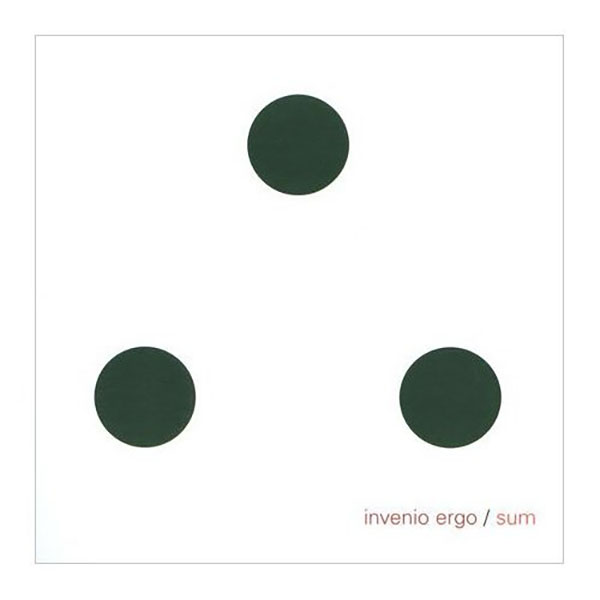
by Tim Owen
November 10, 2010
/ ALBUM
Over two lengthy sets, divided here onto two CDs, the Sum trio play with focused deliberation and - particularly in the second set - concentrated energy.
Sum
“Invenio Ergo”
(Matchless)
Eddie Prévost - Drums; Ross Lambert - Guitar; Seymour Wright - Alto Saxophone
Invenio Ergo was recorded live at Café Oto, London, in February of last year. Over two lengthy sets, divided here onto two CDs, the Sum trio play with focused deliberation and - particularly in the second set - concentrated energy. You get a real sense of them ?playing out’, which probably stems from the fact that the trio stems from a lengthy series of weekly workshops, run under the auspices of their most experienced member, Eddie Prévost. And yet, for the duration of the first set at least, “Invenio Ergo” is a curiously solipsistic work.
Eddie Prévost will perhaps always be best known for his 44-year membership, alongside pianist John Tilbury and guitarist Keith Rowe, of AMM. His workshops, however, could ultimately leave a comparable, or perhaps even a greater legacy. I cannot write from experience about these workshops, but I would doubt that this one recording, whatever its merits or otherwise, can be representative of it as a whole. It has reputedly, over time, encouraged the playing of over 250 musicians. Such a weekly commitment to fostering the musical development of others - many with relatively little experience - is a laudable ?communitarian’ and ?ego-less’ impulse (to recycle commentator Brian Morton’s words), but for an outsider, on this evidence, its output may not always be compelling.
It’s hard to say why this is so, since much of the work by guitarist Ross Lambert and alto saxophonist Seymour Wright is, at the very least, perfectly fine. They have in common an antipathy to excess, with each appearing, in his own way to approach his chosen instrument as a blank slate, shorn of the baggage of cultural history. Certainly there are a few allusions to, and even passing quotations from the works of others (early on Wright clearly quotes Coltrane’s “Giant Steps”), but both Wright and Lambert share a pleasing fondness for sober rigour. Wright can reputedly be an austere and rather over-intellectual musician. I’ve only ever seen him perform with Sum, and that hasn’t been my experience. Here, in any case, he eschews any particularly ?alternative’ approach to his instrument or exploration of extended technique, and concentrates on honing his own sound through more-or-less ?straight’ blowing. Lambert is likewise content to focus inwards, seemingly more concerned with tonal control than any potential for hubristic self-expression. For the first set this is actually problematic for the listener. Although admirable, the experience of listening in to such inwardly focused playing is too much like eavesdropping on a private practice session. Thankfully the trio loosen up considerably for the second set.
The trouble, I think, lies mostly with Eddie Prévost. For this group he adopts what is, for him, a relatively direct ?freebop’ style. You can tell it’s Prévost, but only if you accept that the AMM veteran will sometimes choose to lay down backbeats. In doing this he provides rhythmic support for his colleagues that is doubtless surer than his customarily more oblique timekeeping, but this comes at the price of the authoritative sensitivity which usually marks his playing. This regular-rhythm-plus-Coltrane-licks combination has got a few AMM watchers quite excited, but I’m not sure why. I wouldn’t want to put Prévost into any stylistic box, but the repression of his more usually rhythmically limber style actually takes some of both the surprise and the exuberance out of his playing. For Wright and Lambert the joy of playing ?live’ in concert music that they’ve hitherto mostly mulled over in private, seems tempered. Prévost seems to direct as much as influence the course of musical events, and the results are stifled by that didactic constraint.
On a more positive note, the second set does much more than suggest that Sum’s music can really breathe and expand when given sufficient exposure, and I will often be returning the second of these two discs to my player. The more we hear of Prévost, Lambert and Wright beyond the confines of the workshop, I suspect, the better for everyone.
blog comments powered by Disqus